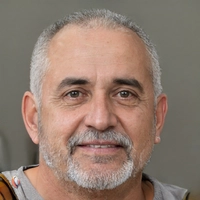A handwritten letter, signed "Madeleine X," slipped through the door of Kate and Gerry McCann’s Leicestershire home on December 8, 2024, just hours after two women—Julia Wandelt, a 24-year-old Polish national from Lubin and Karen Spragg, 61—stood outside their house. The letter, addressed to "Dear Mum (Kate)," carried a chilling intimacy: "I am your daughter." It wasn’t a threat. It was a plea. "I don’t understand why you don’t want to do a DNA test with me," it read. "I think you are scared, but whatever makes you scared, just remember that you are stronger than that."
That letter became the emotional centerpiece of a trial at Leicester Crown Court in October 2025, where both women now face charges under the Protection from Harassment Act 1997. The McCanns, who’ve spent nearly two decades searching for their missing daughter, were once again thrust into a nightmare—not by a suspect in Madeleine’s disappearance, but by someone who believes, with terrifying conviction, that she is Madeleine herself.
The Letter That Shook a Family
The note, penned in careful cursive, didn’t demand money or publicity. Instead, it spoke of love, trauma, and a desperate need for truth. "I felt a close connection to you," Wandelt wrote. "I heard a lot of care and love in your voice." She claimed to have "gathered a lot of evidences supporting my case"—a phrase that sounds odd to outsiders, but to those familiar with identity disorders, it’s chillingly familiar. She didn’t ask to be believed. She asked to be tested.
For the McCanns, this wasn’t the first time they’d been targeted by someone claiming to be Madeleine. But it was the first time someone had traveled from another country, shown up at their door, and left behind something so raw, so personal. The letter didn’t feel like a hoax. It felt like a cry for help.
"I’m Still Questioning My Identity Now"
Julia Wandelt, testifying under oath on October 7, 2025, didn’t deny sending the letter. She didn’t deny visiting the McCann home. What she denied was any intent to harass. "I have a genuine belief," she told the court, her voice steady, "that I am Madeleine McCann. I am still questioning my identity now."
Her story began in childhood. Wandelt said she suffered years of abuse at the hands of her step-grandfather in Poland. She couldn’t remember anything before the abuse. "I could only remember abuse," she said. Then, in 2022, her biological father told her something that shattered what little stability she had left: "He had been involved in kidnapping."
She didn’t go to the police. She didn’t call a therapist. She went online. She searched international missing persons databases. "There were not actually a lot of people my age or around my age," she said. "But that is how I found Madeleine."
Wandelt’s trauma didn’t end there. She admitted to self-harming and attempting suicide after learning the truth about her step-grandfather. Her search for identity, she insists, wasn’t about fame or money. It was about survival. "I could not be able to heal from my trauma if I never fully know who I am."
Who Is Karen Spragg?
Then there’s Karen Spragg. A 61-year-old British woman, she traveled with Wandelt from Poland to Leicestershire on December 7, 2024. She stood beside Wandelt outside the McCann home. She didn’t speak to reporters. She didn’t testify in court. Her role remains a mystery. Was she a supporter? A fellow believer? A manipulator? The prosecution hasn’t offered clarity. The defense hasn’t challenged it. The silence around Spragg is as loud as the letter itself.
A Case That Crosses Borders
It’s easy to dismiss Wandelt as delusional. But her case isn’t just about mental illness—it’s about the long shadow of missing children. Madeleine McCann vanished on May 3, 2007, from the Ocean Club resort in Praia da Luz, Portugal. She was three years and eleven months old. Her parents, Kate Healy McCann and Dr. Gerry McCann, launched a global campaign that turned their daughter’s disappearance into one of the most followed missing person cases in modern history.
Portuguese authorities closed their investigation in 2008. German prosecutors reopened it in 2013 after a tip-off about a suspect seen near the resort. That investigation, led by the Public Prosecutor’s Office in Braunschweig, Germany, remains active. No one has been charged. No body has been found. And in the vacuum of answers, people like Julia Wandelt find room to breathe.

What Happens Next?
The trial at Leicester Crown Court is expected to last weeks. Judge Nicholas Dean QC is overseeing proceedings that blend criminal law with deep psychological questions. The defense is likely to argue that Wandelt’s actions, however inappropriate, stem from a psychiatric condition—not malice. The prosecution will argue that the repeated visits, emails, and calls constitute a pattern of harassment.
What’s clear: the McCanns didn’t ask for this. They’ve spent 18 years fighting for justice for their daughter. Now, they’re being asked to confront a woman who believes she is her. And they’re being asked to choose: Is this a crime? Or a tragedy?
The Bigger Picture
Wandelt’s case isn’t isolated. There are documented cases of people who, after trauma, develop false identities tied to famous missing persons. In 2019, a woman in the U.S. claimed to be the daughter of a missing child from the 1980s—later diagnosed with dissociative identity disorder. In 2021, another in the UK insisted she was a child abducted during the 1990s, and spent years writing letters to her "parents." None of them had any biological link. But the emotional pull? Real.
What makes Wandelt’s case different is the timing. The McCann case is still open. The world still watches. And for someone lost in memory, that attention isn’t noise—it’s a lifeline.
There’s no easy answer here. Not for the court. Not for the McCanns. Not for anyone who’s ever wondered, "What if?"
Frequently Asked Questions
How did Julia Wandelt come to believe she is Madeleine McCann?
Wandelt says her belief began after her biological father revealed in 2022 that her abusive step-grandfather had been involved in kidnappings. She searched missing persons databases and found Madeleine McCann—the only child matching her age and physical description. Combined with childhood amnesia from trauma, this triggered a profound identity crisis, leading her to believe she was the missing girl.
Why hasn’t Kate McCann taken a DNA test with Julia Wandelt?
The McCanns have publicly stated they will not engage with individuals claiming to be Madeleine unless law enforcement initiates contact. They’ve been targeted by dozens of imposters over the years, and each encounter retraumatizes them. A DNA test, even if offered in good faith, risks legitimizing false claims and opening the door to further exploitation.
Is Julia Wandelt mentally ill, or just dangerous?
Wandelt has described severe childhood trauma, self-harm, and suicide attempts—signs consistent with complex PTSD and possible dissociative disorders. But mental illness doesn’t excuse harassment. The court must determine whether her actions, while rooted in psychological distress, meet the legal threshold of criminal stalking under UK law.
What’s the status of Madeleine McCann’s actual case?
Portugal closed its investigation in 2008, but German prosecutors reopened it in 2013 based on new forensic leads. The case remains active under the Public Prosecutor’s Office in Braunschweig, Germany. Authorities believe a man seen near the Ocean Club resort on the night Madeleine vanished may be connected. No arrests have been made, and the search continues.
What role did Karen Spragg play in this case?
Spragg, a 61-year-old British woman, accompanied Wandelt to the McCann home but has not spoken publicly. Prosecutors have not clarified her involvement. She is charged alongside Wandelt under the same stalking laws, but her motivations—whether as a supporter, enabler, or co-conspirator—remain unknown, making her a critical but mysterious figure in the trial.
Could this case lead to changes in how missing persons cases are handled?
Yes. This case highlights the psychological toll on families of the missing and the vulnerability of people with trauma to false identity claims. Experts are calling for better coordination between mental health services and law enforcement to intervene before such cases escalate. Some suggest creating a formal protocol for handling "identity claimants"—separating psychological support from criminal investigation.




